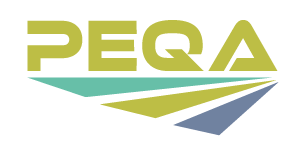Rehabilitation professionals working in the state-federal vocational rehabilitation (VR) system provide services they believe will best help people with disabilities find and keep quality employment. Often, their belief that the services they provide will help their consumers is based on personal experience, guidance from more experienced service providers, or directives from their agency.
Scientific Data Backs Effectiveness of Services
Now vocational rehabilitation professionals don’t have to rely solely on experience and word of mouth to decide which services will help people with disabilities meet their employment goals. After extensive study, a group of national experts provided scientific data showing that 26 services provided by state-federal VR agencies are either promising or evidence-based.
Vocational rehabilitation practitioners can provide these services knowing they help improve employment outcomes for people with disabilities. These services are:
- Transition Services
- Assistive Technology
- Individual Placement and Support Model of Supported Employment (IPS)
- On-the-Job Training
- Demand Side Employment Strategies
- Benefits Counseling
- Motivational Interviewing
- Customized Employment
- Community Based Work Program (Adults)
- Working Alliance
- Person Centered Planning (PCP)
- Soft Skills Training
- Dual Customer Approach
- Job Club
- Family Involvement & Support
- Social Skills Training
- Cognitive Behavioral Therapy
- Assertive Community Treatment (ACT)
- Positive Psychology Interventions
- Project Search
- Solution-Focused Brief Therapy
- Health Promotion Interventions
- Person Centered Therapy
- Online Community of Practice for VR Counselors
- Social Media
- Tele-Health/Tele-Rehabilitation
Counselor-Consumer Relationship is Critical
The researchers who conducted this study noted that although these services are backed by strong scientific evidence, the relationship between the counselor and consumer is critical to successful outcomes for consumers. As Wamplod (2001) said:
“What really makes a difference is not which treatment is delivered, but the skill with which the treatment is provided. You can’t deliver some magic ingredient that is going to make patients better. What makes a difference is how skilled the therapist is and the collaborative process of client and therapist working together” (2015, Para.11).
Learn More
You can learn more about this study, and promising and evidence-based practices in VR, using these resources:
- Findings from the Rehabilitation Research & Training Center on Evidence-Based Practices in Vocational Rehabilitation (RRTC-EBP VR) Plain Language Summary:
- In 2016, researchers presented findings from this study at the Rehabilitation & Research Center on Evidence-Based Practices in Vocational Rehabilitation (RRTC-EBP VR). You can watch this presentation and access presentation materials:
PowerPoint: EBP in VR: Results of a National Delphi Study
Webcast: Watch it on YouTube - Learn more about how to apply evidence-based practices in your practice using the Evidence-Based Practice Toolkit for VR Counselors


Comments 3
I do like how these vocational rehabilitation services exist to help provide services they believe that can help their clients find and keep quality employment as your article mentioned. That should be perfect for those who got injured by previous works or even for our heroic veterans. I’ll try to read more about these services to see if they have requirements or just anyone could use their help. Thanks!
Is there anywhere to find updated information or continuing research on EBP in VR?
This has some information on recent EBP: http://research2vrpractice.com/